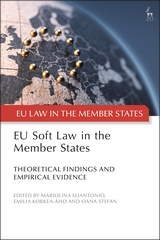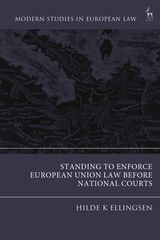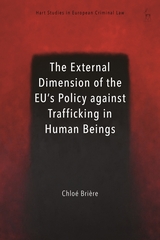Some Reflections on the People’s Climate Case
by Enzo Elia*
The applicants of the case Carvalho v. Parliament and Council, also known as the people’s climate case, claim that their homes, livelihoods, traditional family occupation and culture are affected by climate change.
Climate change already has severe impacts on ecosystems, the economy, human health, and the well-being of the people around the world, including Europe. We can observe an increasing number of people claiming for more ambitious climate action from their governments and taking action to fight against climate change.
The applicants of the people’s Climate Case, supported by a broad range of NGOs, lawyers, citizens and scientists, are calling for a significant push on the EU agenda regarding its climate action and its 2030 climate target fixed by the 2018 Climate and Energy Framework.
The applicants underline that the climate protection is no longer a political or diplomatic issue rather, climate change has become a concrete problem which severely impacts their homes, livelihoods, and hinders their children’s future. Furthermore, the applicants also argue that a more ambitious EU 2030 climate target below 2 °C, or ideally 1,5 °C would also support the global community to keep within the range of the Paris Agreement’s long-term temperature goal. This would allow the objective to keep temperature rise within globally “safe limits”.
Facts of the Case
The case was filed in 2018 by 36 different applicants from five EU Member States Germany, France, Italy, Portugal, and Romania and two countries Kenya and Fiji, as well as a Swedish association representing indigenous Sámi youth before the General court.
Directly affected by rising sea levels, floods or drought – consequences of climate change – the applicants challenged the 2018 Climate and Energy Framework measures regulating greenhouse gas emissions for the years 2021 to 2030 namely the EU Emissions Trading System Directive, the Effort Sharing Regulation and the LULUCF Regulation. These EU instruments set an overall target of reducing annual greenhouse gas emissions by 40% compared to 1990 emission levels. Alleging a violation of their fundamental rights and invoking the Paris Agreement, the applicants requested the followings from the court : (i) to annul the Union’s legislative package insofar as it sets a target of 40% reduction in greenhouse gas emissions by 2030 compared to the level of the year 1990, and (ii) to order the Council and the European Parliament to adopt measures imposing a reduction of GHG at least between 50 and 60%, in lieu of monetary compensation for their alleged individual losses under Article 240(2) TFEU.
The General Court of the European Union
By order of 8 May 2019, the General Court ruled that the action was inadmissible on the basis that the applicants bringing the action failed to satisfy any of the locus standi criteria. Referring to a strict application of the Court of Justice of the European Union (CJEU) judgement Plaumann of 1963, the General Court decided that the applicants were not individually concerned by the EU Climate and Energy Framework.
The General Court stated that despite the effects of climate change may be different for one person to another, this does not mean that there exist reasons to bring an action against a measure of general application. In its view, a different approach has the effect of rendering the requirements of the Treaty on the Functioning of the European Union (TFEU) meaningless and creating locus standi for all. The General Court then ruled on the claim that the Council and the Parliament should be ordered to adopt more severe measures, which was made in the form of a claim for damages. the General Court considered that this claim sought, in reality, to obtain a result similar to the result of annulling the acts at issue and that, consequently, it also had to be declared inadmissible.
The applicants then appealed against the order of the General Court with the objective of the CJEU authorizing to rely on a possible infringement of fundamental rights to satisfy the conditions of the Plaumann judgment.
The Court of Justice of the European Union
The CJEU reiterated what the General Court held in Sabo, another climate action case. In Sabo, the General Court held that claiming that an act of the Union infringes fundamental rights is not sufficient to establish that the action brought by an individual is admissible. This would risk violating the conditions of admissibility laid down in Article 263(4) TFEU. The CJEU recalled that the Courts of the European Union may not, without going beyond their jurisdiction, read those conditions in a way which has the effect of setting aside what is expressly laid down in the TFEU, even in the light of the fundamental right to effective judicial protection enshrined in the Charter of Fundamental Rights of the European Union.
Comment
Wouldn’t it have been better to question the relevance, today, of the criteria set out in Plaumann case law, regarding climate actions? Article 263(4) TFEU includes the notion of individual concern. One should not be obliged to read into this notion a requirement that an individual applicant seeking to challenge a general measure must be differentiated from all others affected by it in the same way as an addressee. On that reading, the greater the number of persons affected by a measure the less likely it is that judicial review under the fourth paragraph of Article 263(4) TFEU will be made available. The fact that a measure adversely affects many individuals, causing widespread rather than limited harm, provides a positive reason for accepting a direct challenge by one or more of those individuals. It should therefore be accepted that a person is to be regarded as individually concerned by an EU measure where, by reason of his particular circumstances, the measure has, or is liable to have, a substantial adverse effect on his interests.
In a nutshell, the Plaumann criteria are too restrictive and do not allow adequate access to justice for environmental and climate actions. Climate change, by its nature, affects everyone, present and future generations alike. Following the case-law of the CJEU, the mere fact that the effects of climate change are general renders the corresponding legal acts unsuitable for judicial review.
For the applicants to argue the infringement of their fundamental rights, they relied, inter alia, on the Codorníu case. In Codorníu a Spanish producer of sparkling wines sought to challenge a provision of a regulation which reserved the use of the designation crémant for wines produced in certain areas of France and Luxembourg. That provision could affect the position of all producers of sparkling wines in the EU using, or desiring to use, the designation crémant. The Court found nonetheless that Codorníu registered the graphic trademark Gran Crémant de Codorníu in Spain in 1924 and traditionally used that mark both before and after registration. By reserving the right to use the term crémant to French and Luxembourg producers, the contested provision prevents Codorníu from using its graphic trademark, and it concluded that Codorníu had therefore established the existence of a situation which from the point of view of the contested provision, differentiated it from all other traders.
Therefore, in Codorníu it was established that the applicant was harmed by a legislative act of general application by his individual interest derived from an individual trademark right he had acquired. However, the CJEU rejected the argument claiming the analogy between the people’s climate case with the Codorníu case. As noted in a comment on the Sabo case, the reasoning of the CJEU was in essence that the Codorníu case concerned the loss of the acquired specific right to use a word within a trademark, while the people’s climate case concerned the protection of their fundamental rights, which are original and universal. Thus, in the current state of CJEU case law, the loss of a specific acquired right that is not originally possessed by its owner would find greater judicial protection than the infringement of fundamental rights granted to one or more individuals.
Given the rigidity of the Plaumann criteria, applicants are inclined to find – sometimes using a loophole as an alternative – other reasons for their claims, rather than relying directly on the violation of fundamental rights. Admissibility is therefore one problem – but not the only one – with which litigation on environmental protection and the fight against climate change must contend. The criteria imposed by Plaumann should be revised to adapt them to the needs of environmental protection. In fact, criteria designed to be applied to human beings are ill-suited to environmental protection, which would only be able to comply with them indirectly using other justifications aimed at demonstrating the presence of an individual interest.
It is also worth recalling that the European Union is bound by the Aarhus Convention. Article 9(3) of the Aarhus Convention requires that “members of the public […] may initiate administrative or judicial proceedings to challenge acts and omissions by private persons or public authorities which contravene provisions of national law relating to the environment”. As noted in another comment on the case, the Compliance Committee of the Aarhus Convention has stated in two reports published in 2011 and in 2017,that the criteria established by the Plaumann judgment were “too strict to meet the Convention’s criteria” because “persons cannot be individually affected if the decision or regulation takes effect by virtue of an legal objective legal or factual situation”.
However, beyond the question of admissibility, it could be argued, as some scholars did, that the possibility for an individual applicant to trigger a reference for a preliminary ruling under Article 267 TFEU provides full and effective judicial protection against general measures, such as measures related to environmental protection and the fight against climate change.
AG Jacobs in his opinion in Unión de Pequeños Agricultores case of 2002 criticised this assumption.
In fact, under the preliminary ruling procedure the applicant has no right to decide whether a reference is made, which measures are referred for review or what grounds of invalidity are raised and thus no right of access to the Court of Justice; on the other hand, the national court cannot itself grant the desired remedy to declare the general measure in issue invalid. Furthermore, there may be a denial of justice in cases where it is difficult or impossible for an applicant to challenge a general measure indirectly (e.g. where there are no challengeable implementing measures or where the applicant would have to break the law in order to be able to challenge ensuing sanctions. Finally, indirect challenges to general measures through references on validity under Article 267 TFEU present several procedural disadvantages in comparison to direct challenges under Article 263 TFEU before the General Court as regards for example the participation of the institutions which adopted the measure, the delays and costs involved, the award of interim measures or the possibility of third-party intervention.
Conclusion
In 2002 AG Jacobs has started calling for the Plaumann criteria to be significantly revised and this is more than acceptable. However, the CJEU has strictly applied the individual concern requirement up to now. While the preliminary ruling does not represent a complete protection against infringements resulting from measures of general application, it is also true that it can confer some protection on individuals and can therefore be an alternative to direct action at least until the CJEU is willing to change its approach on the concept of individual concern.
Beyond the question of the application of Article 267 TFEU, in a case like the people’s climate case, appeals under Articles 263 and 277 TFEU would also have failed. The Plaumann criteria would have constituted an obstacle to the application of Article 277 TFEU. Furthermore, the level of partial harmonisation of the 2018 Climate and Energy Framework would have made a possible appeal to the CJEU under Article 263 TFEU against the implementing acts of the member states inadmissible.
The CJEU’s restrictive approach now differs from those adopted by national courts regarding the locus standi of natural persons in climate actions. But the admissibility of a climate action at national level to safeguard a fundamental right is influenced by national laws, which leads to differences in protection depending on the Member State in which action is taken. A second problem is the often very high costs that claimants must bear for a nationwide action, as well as possible delays in the procedure.
Today, the European Union is one of the main global actors for the adoption of ambitious climate policies, but there is still a lot to be done in terms of access to justice for environmental and climate action.
* Enzo Elia is a teaching and research assistant, and he is carrying out a Ph.D. in EU and international climate change law at the University of Geneva. His Ph.D. research aims to understand how and to what extent the EU contributes to the development and implementation of the global climate regime through the analysis of the compositional elements of the concept of EU actorness. The analysis will lead to the redefinition of the concept of EU actorness in the field of climate change. Furthermore, ascertained that the discipline still lacks a generalizable conceptual framework, an attempt will be made to propose a new model to bring research on actorness to a systematic level.
His current areas of interest and activity include EU and international environmental and climate change law, EU and international governance, the relationship between climate change and human rights, the relationship between the global climate change regime and other global regimes, the systemic relationships between regional and international organisations, international dispute settlement, sustainable development.







